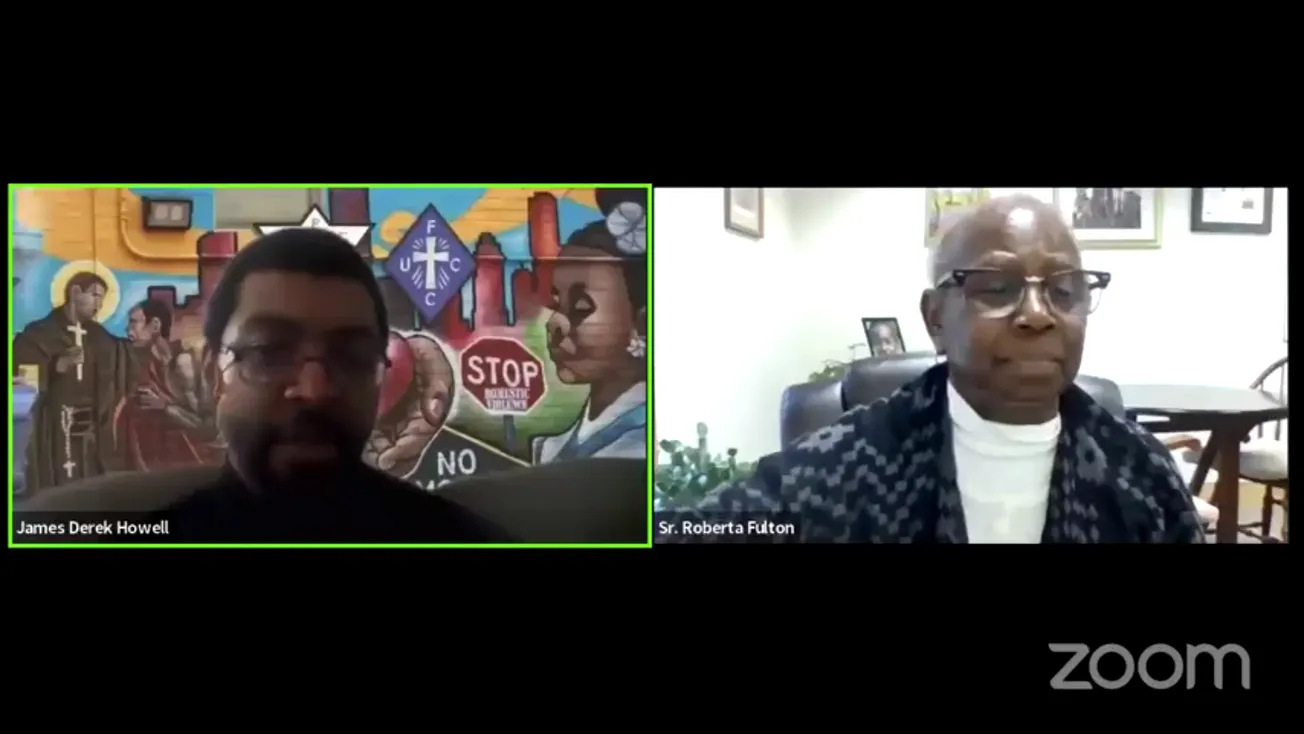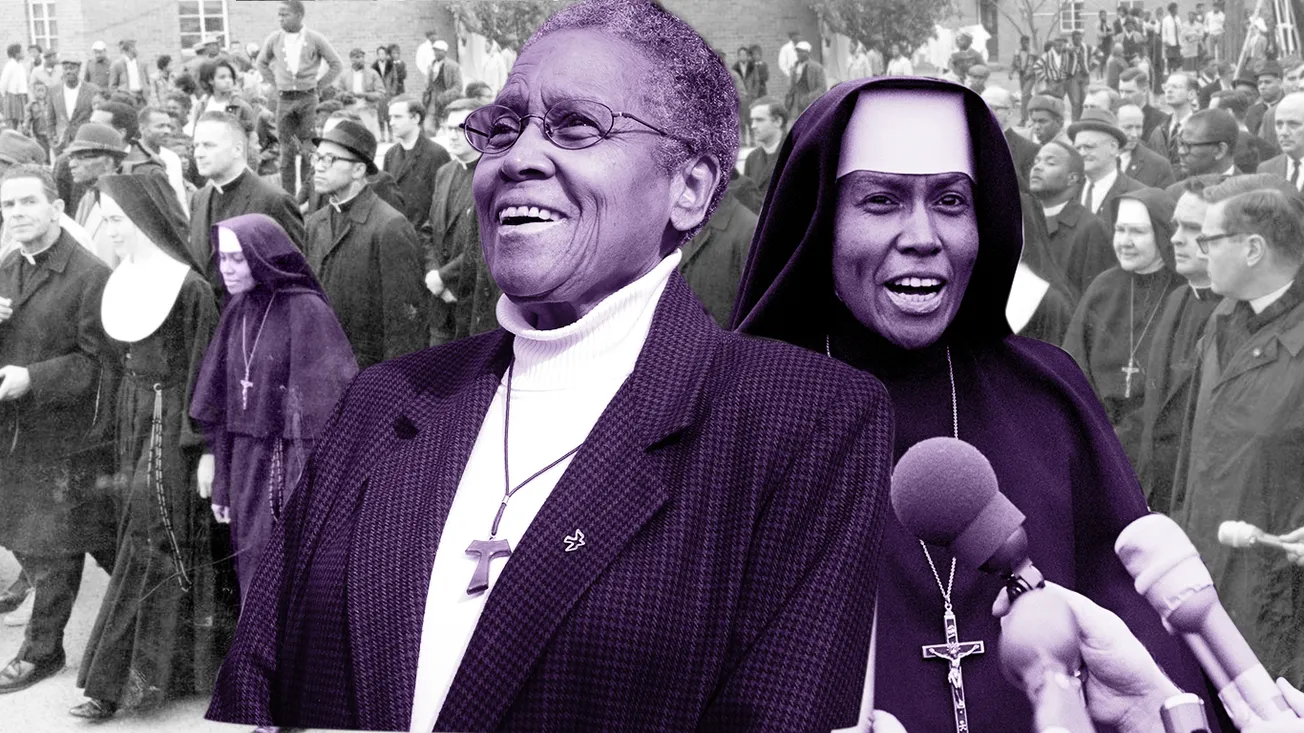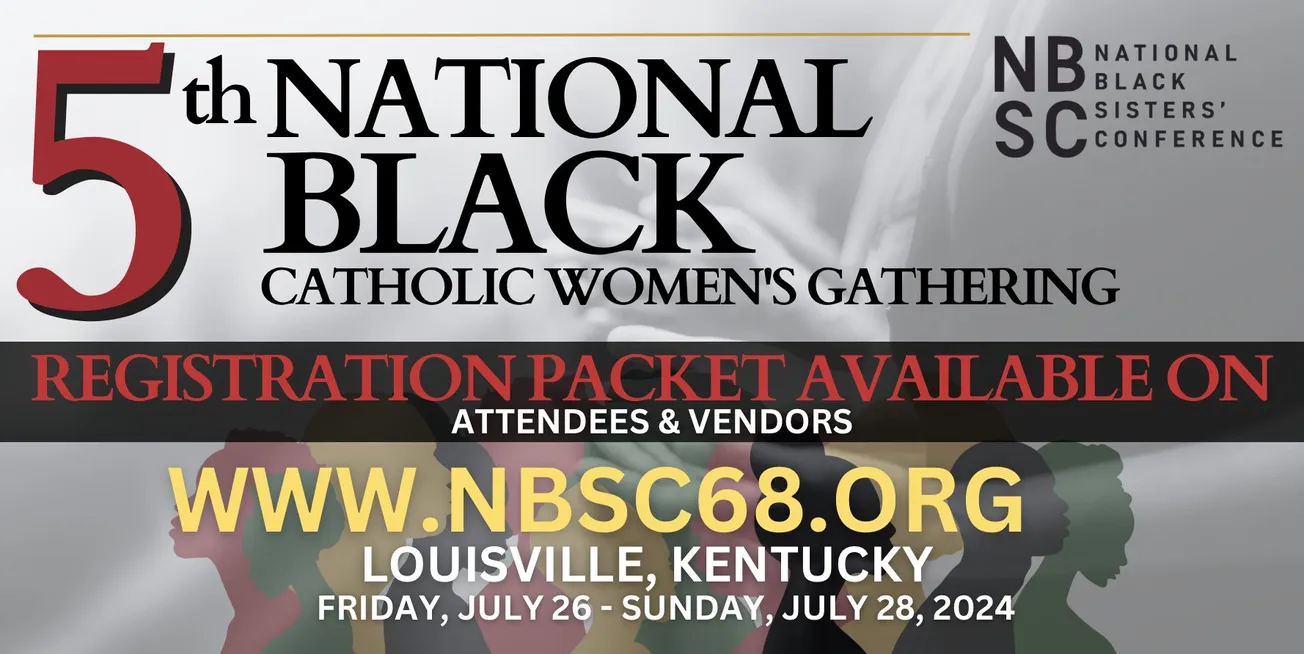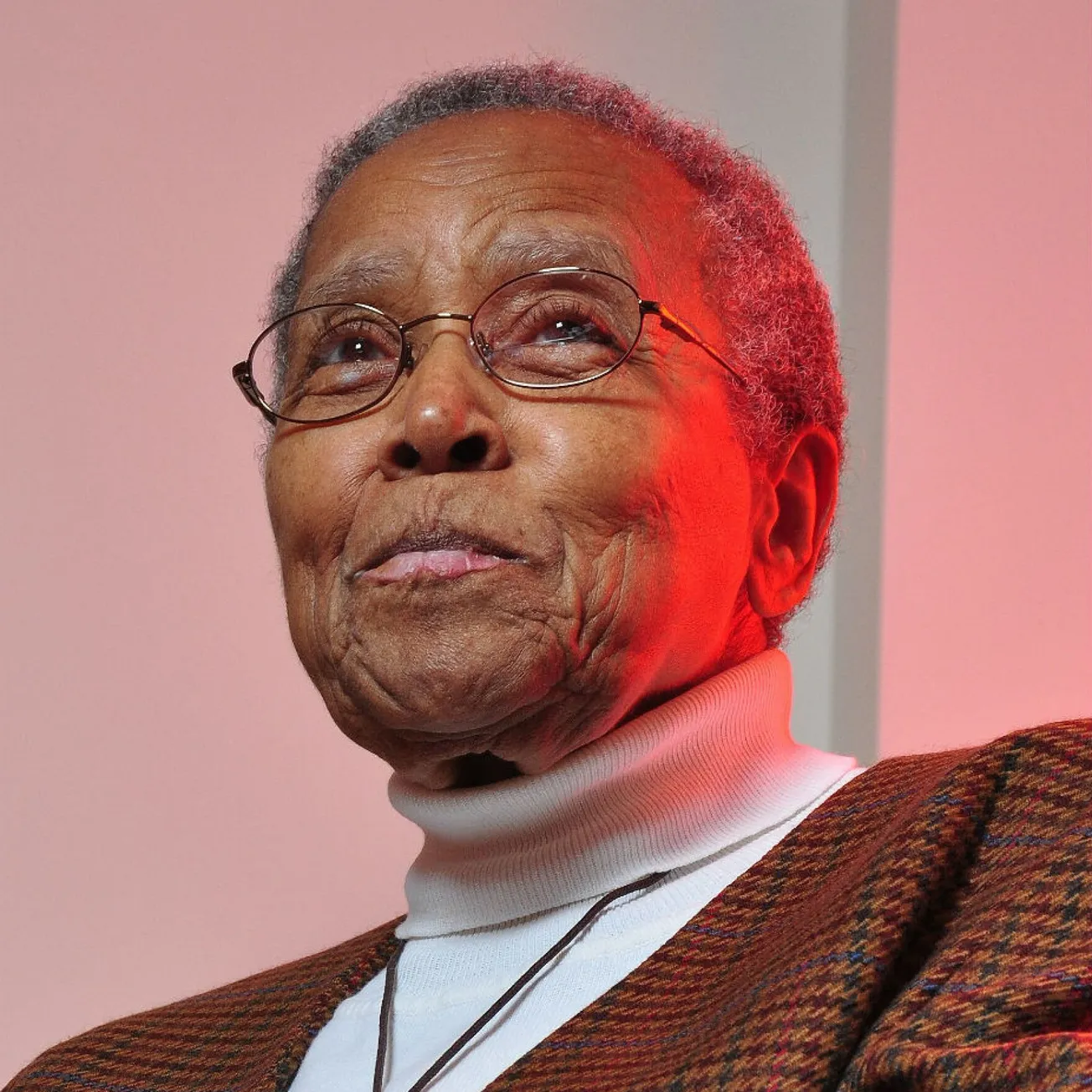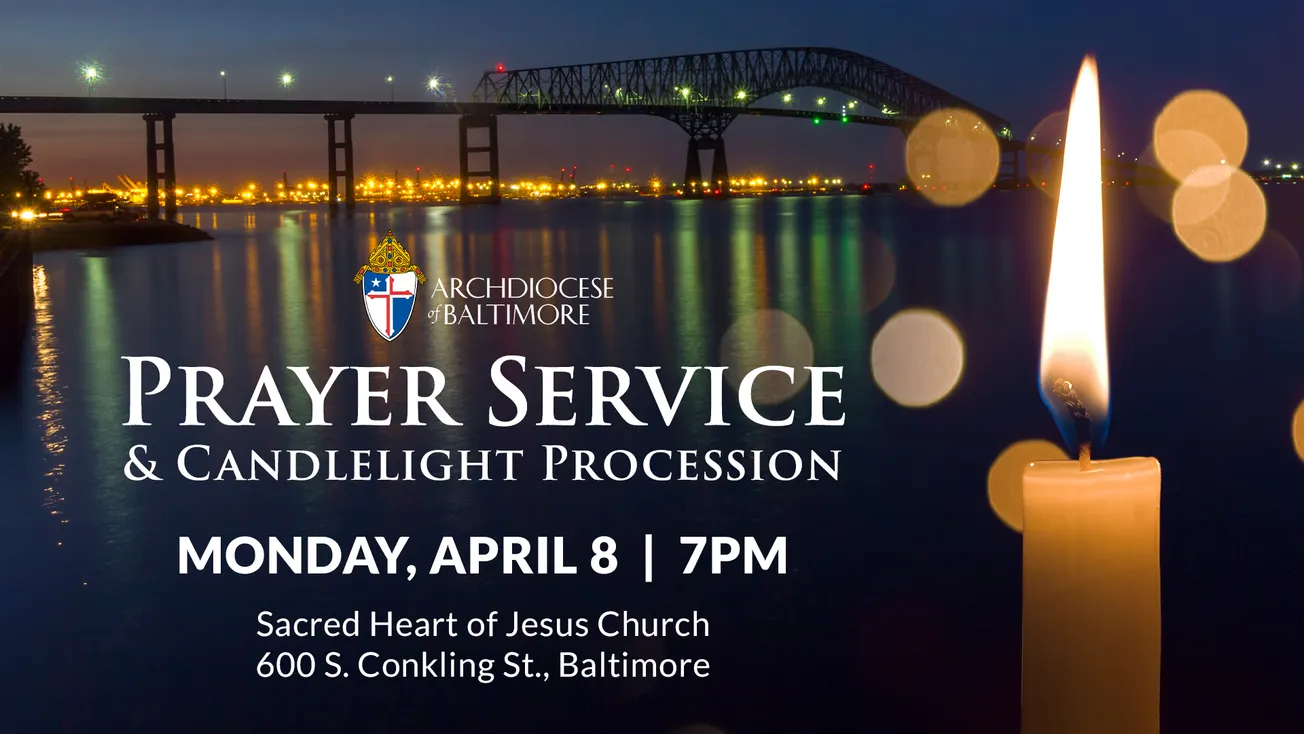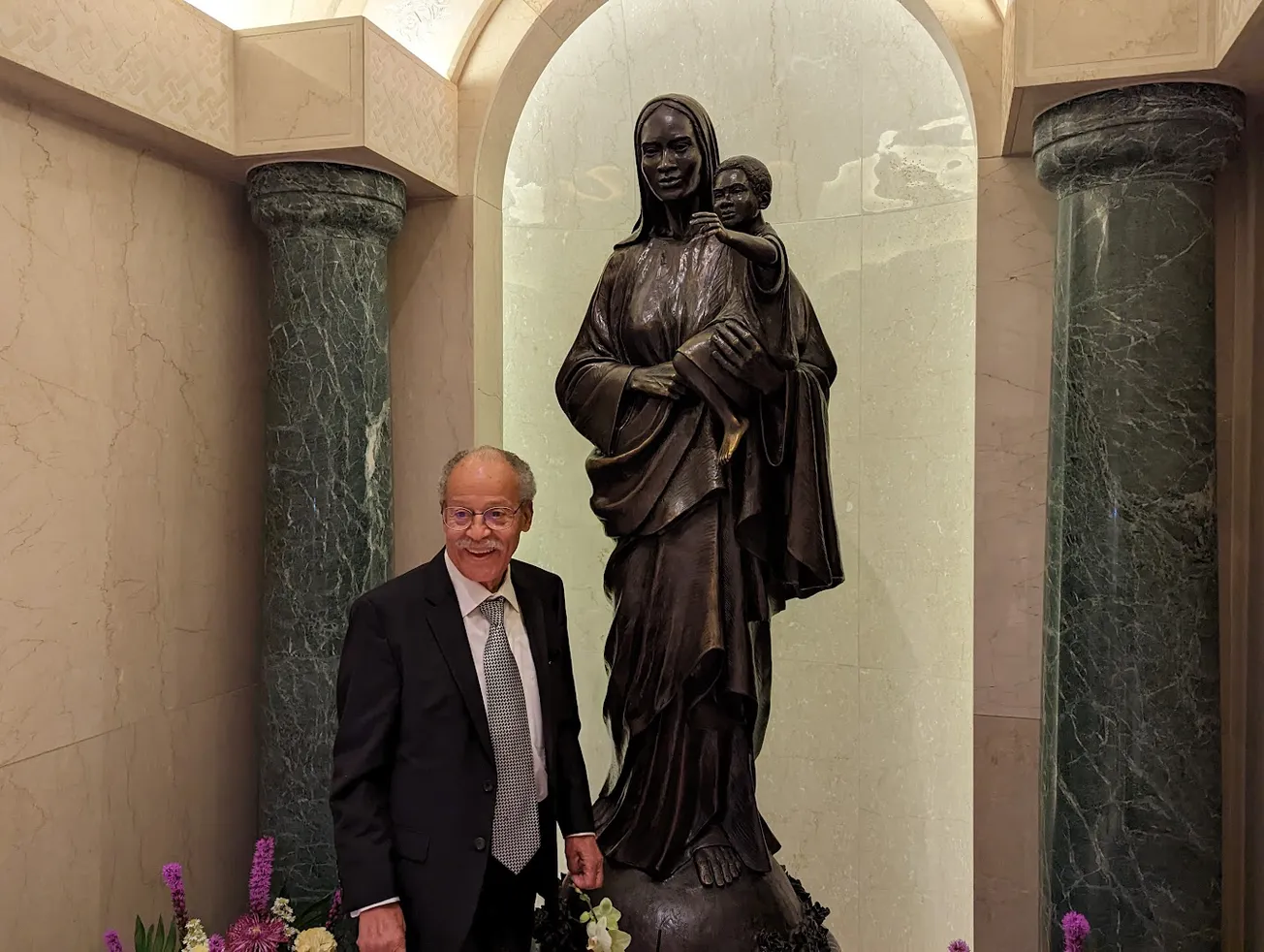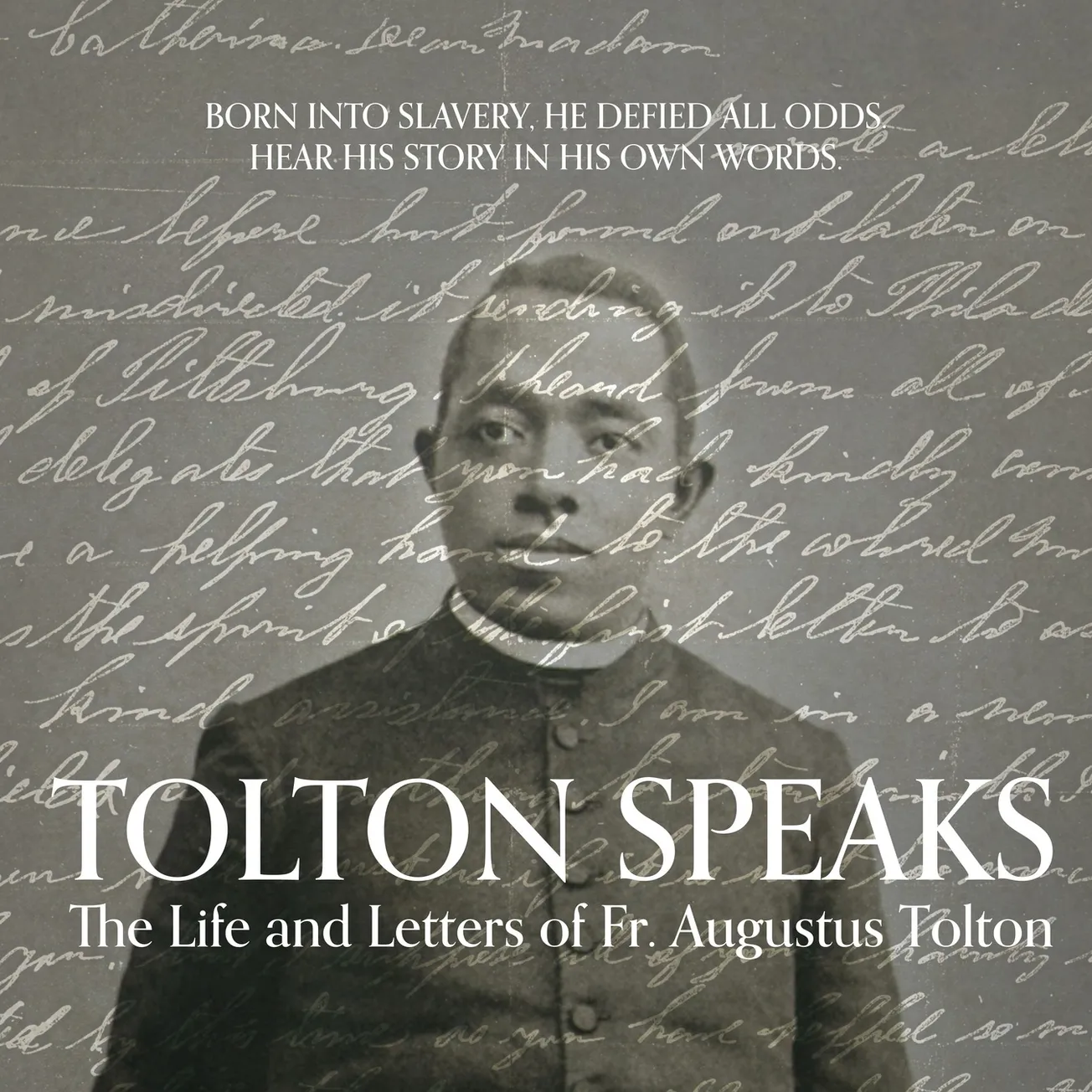The Knights of Peter Claver and Ladies Auxiliary hosted their latest webinar on Saturday, February 19th, on the issue of systemic racism, held over Zoom and livestreamed via Facebook.
It was the second event in their 2022 social justice series, which began in January with a panel on human trafficking. Saturday’s event followed a similar theme as a webinar held by the Black Catholic fraternal order in April of last year.
This year’s iteration featured KPC members from around the country, including a Black religious sister, young adult, priest, bishop, and legal professional.
The two clergymen, Fr Maurice Nutt, CSsR and Auxiliary Bishop Fernand Cheri III, OFM—both of New Orleans—kicked off the event, encouraging action on the issue from the perspective of institutional leaders in the Church.
“It’s as if they are trying to re-invent our story to deny the truth of slavery, brutality, disenfranchisement, marginalization, and oppression in our society,” Nutt said later in the event.
“There’s a [need to resist] all that tries to erase Blackness and make Blackness sub-standard and abnormal.”
Imri Davis, a 20-year-old college student at Philander Smith College and past president of the KPC Texas State Junior Conference, noted his perception of the need for institutional Catholic participation in protest movements in support of African Americans.
He said that he saw a deficit on that front during the protests in the wake of the murder of George Floyd.
Sr Roberta Fulton, SSMN, who serves in Buffalo, New York, began her segment with a poem from the Catholic-raised poet Amanda Gorman, who has focused much of her public advocacy on empowering women and young girls.
Fulton herself noted that the struggle of Black women has often been hidden within the larger narrative of Black resistance and the (largely White) women’s movement. This has included historic struggles against stereotypes as well as stigmas, leading to materially harmful misconceptions in economic and social sectors, and discouragement of women in the realms of political engagement and education.
Fulton noted, however, that Black women have in many ways persevered and overcome.
“I’m here today to tell you we have moved. We have been shaking the ground,” she said.
“We are not a dream deferred.”
Arthur McFarland, a retired judge in Charleston, South Carolina and current KPC national advocate, began his segment on the history of US Black Catholics, noting that some of the first African slaves brought stateside were Catholics from the Kingdom of Kongo. They would later lead one of the largest slave rebellions in history.
He lamented that many such stories are forgotten—often intentionally.
“The history of our Catholic Church is steeped in the erasure of the contributions of African Americans… solely because of our race,” McFarland said.
He cited books from the late Fr Cyprian Davis, OSB and Dr. Matthew Cressler, which respectively cover the broader history of Black Catholics and the modern struggle of that community to inculturate their faith.
McFarland said that “the lack of moral courage by the bishops” led to Black Catholics taking up the responsibility for themselves to create institutions for their uplift, ranging from the Jim Crow era up to and after the Civil Rights Movement.
A similar mode of resistance among White clergy and laity has persisted, he added.
“The Church’s emphasis on pro-life [issues] has caused an alignment between Church leaders and White Evangelicals, some of whom continue to support racist policies and practices,” he said.
“Racism is a sin, from Rome to Washington. Elimination of racism within the Catholic Church must be frontally addressed.”
The event’s Q&A session began with each panelist giving stories of the struggle against racism in their personal lives, with Cheri noting that toward the end of his seminary education, he was told that there was no assignment for him—in an archdiocese of 156 parishes.
“[It was] because I was a Black man, having to live in a rectory with a White priest,” he said.
McFarland spoke on the discouragement he received from a White guidance counselor at his Catholic school concerning his plan to attend the University of Notre Dame—whose student body at the time was only about 0.004% Black.
Nutt spoke on the experience of hearing a friend in his high school seminary say that his grandfather told him “n****r people have only half a brain”. The student related this to his prediction that Nutt wouldn’t last at seminary.
“Racism is a learned behavior,” Nutt concluded.
In response to a later question on reading recommendations concerning this intersection of racism and Catholicism, among the texts mentioned were “Caste” by Isabel Wilkerson, “Birth of a Movement” by Olga M. Segura, “Racial Justice and the Catholic Church” by Fr Bryan Massingale, “Four Hundred Souls” from Ibram X. Kendi and Keisha Blain, and “The Survival of Soul” from the National Black Sisters Conference (NBSC).
“Please go and attend the Institute for Black Catholic Studies,” Nutt added, referring to the summer theology program he formerly led beginning in 2014, housed at Xavier University of Louisiana.
“Bishop Cheri, myself, and others would not be where are and who we are if did not have that institute that we own and claim.”
Cheri added that the Knights have an objective for at least one member from every unit (men’s court and ladies’ council) to attend IBCS.
He also noted that Chicago’s Augustus Tolton Pastoral Ministry Program at Catholic Theological Union and the Sankofa Institute for African American Pastoral Leadership at the Oblate School of Theology in San Antonio are similar programs of which Catholics should take notice.
Davis recommended the Ava Duvernay film “13th” as a resource for Catholics to learn more about ongoing American slavery in the crisis of mass incarceration. Fulton recommended the Black Catholic bishops’ 1984 “What We Have Seen and Heard” pastoral letter as an oft-forgotten text of interest on the gift of African Americans to the Church.
Another question posed to panelists concerned the outcry against USCCB president Archbishop José Gómez’ recent speech to a Spanish Catholic conference, in which he condemned modern social justice movements as “pseudo-religions”.
“I think that statement was made out of ignorance on his part, about what the Black Lives Matter movement is all about,” Cheri said, in perhaps the first public statement from any Catholic bishop concerning Gomez’ speech.
“Anybody that knows about that movement knows that it promotes the respect of human dignity, which is the basis of every principle of Catholic Social Teaching.”
Another question concerned the possibility of an African-American Catholic rite, a topic that has gained renewed interest amidst growing concerns that the US bishops are dismissive of African-American affairs and patrimony.
“This has been talked about since the 1987 National Black Catholic Congress… It came to a vote at that Congress. I really wish it hadn’t, in a way,” Cheri said, referring to the NBCC’s inaugural meeting.
“We weren’t ready… We didn’t know what that meant. They didn’t want to be a separatist group. I still think that’s where people’s mindset is, because we have not addressed exactly what it means to be who we are in this Church and what we are called to in this Church.”
Cheri reiterated the need for more participation in IBCS and also the Lyke Conference, a Black Catholic liturgy gathering which he helps to organize. He suggested that these kinds of events could foster a framework to assess what a rite may (or may not) offer African-American Catholics.
Nutt added that advocacy for US Black Catholic concerns and culture actually started with White Catholics from the Vatican. A Dutch cardinal, Willem van Rossum, CSsR had in 1920 noted to the US bishops his concerns on that front, and suggested a Black “prelature” (i.e., ordinariate) to address it.
In typical antebellum American fashion, the White church leaders demurred.
“I say this emphatically: somehow our bishops in the US only listen to Rome when they are speaking a language they want to hear, or are dealing with them on their terms,” Nutt said.
On the issue of Black parish and school closures, Cheri highlighted the need for Black institutions to come together and collaborate on solutions.
“The Black Catholic community has to wake up and realize we’re living in a new day,” he said, noting that resources and engagement are much more scarce than in the past.
McFarland emphasized that Black Catholics must get (or take) “a seat at the table” in their dioceses, to build relationships and obtain knowledge of those resources that can help their parishes and schools thrive.
“We’ve got to get on the inside, function, and bring that information back, and be a part of the decision-making.”
The KPC will hold their next webinar on February 26th at 1pm CT, concerning the ongoing fight for voting rights. Registration for that event can be found here.
Nate Tinner-Williams is co-founder and editor of Black Catholic Messenger, a seminarian with the Josephites, and a ThM student with the Institute for Black Catholic Studies at Xavier University of Louisiana (XULA).


